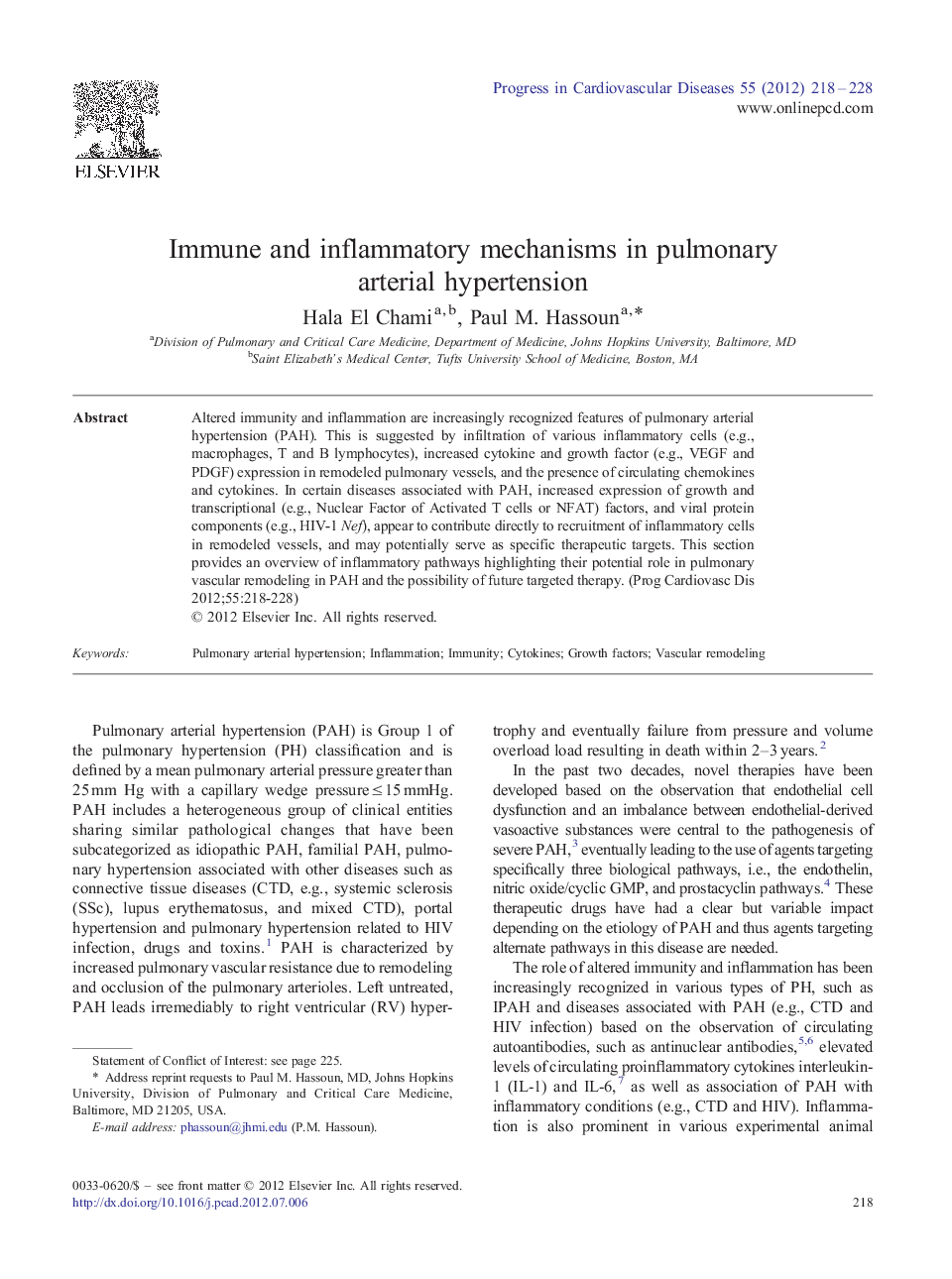| Article ID | Journal | Published Year | Pages | File Type |
|---|---|---|---|---|
| 3006773 | Progress in Cardiovascular Diseases | 2012 | 11 Pages |
Altered immunity and inflammation are increasingly recognized features of pulmonary arterial hypertension (PAH). This is suggested by infiltration of various inflammatory cells (e.g., macrophages, T and B lymphocytes), increased cytokine and growth factor (e.g., VEGF and PDGF) expression in remodeled pulmonary vessels, and the presence of circulating chemokines and cytokines. In certain diseases associated with PAH, increased expression of growth and transcriptional (e.g., Nuclear Factor of Activated T cells or NFAT) factors, and viral protein components (e.g., HIV-1 Nef), appear to contribute directly to recruitment of inflammatory cells in remodeled vessels, and may potentially serve as specific therapeutic targets. This section provides an overview of inflammatory pathways highlighting their potential role in pulmonary vascular remodeling in PAH and the possibility of future targeted therapy.
